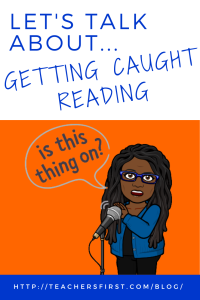Get Caught Reading is a campaign that promotes reading for enjoyment. As teachers, we can help students by celebrating them when we find out that they have been reading for pleasure. An easy way to give recognition of their effort is to use a punch card. It can help build interest and encourage students to buy into reading outside academic requirements. As teachers, we understand that reading is essential for academic success and can be instrumental in building student vocabulary. Reading can also help with personal growth and help to improve a student’s overall health and well-being. This blog post will explore ways to help students get caught reading and how reading benefits both the individual and the community.
Reading can be a powerful tool for community involvement.
As students learn about and engage with local issues, they better understand the world around them and become more informed citizens. This leads students to become more compassionate, empathetic, and understanding and want to take action on issues they care about. So encourage them to get caught using their reading skills to help the community! Some service-learning opportunities that involve reading include:
- Advanced readers can volunteer to read at a local daycare center, library, nursing home, or to an elderly neighbor.
- Reluctant or struggling readers might enjoy reading to shelter pets as there is no stigma or chance that the audience might be unkind.
- Students may also be interested in helping others indirectly – gathering books to donate to a Little Free Library, a local “Book Lady,” or a literacy-based non-profit like the free book bus.
Reading can also have a positive impact on self-regulation and overall health.
Reading can be a great way to unwind and escape from the stressors of daily life. Reading can provide a therapeutic escape for students dealing with stress, anxiety, and other mental health challenges. Additionally, reading has been shown to improve cognitive function, memory, sleep, and overall mental health. Explain Forest Bathing to your students and encourage them to sit under a tree and read. Research shows that 20 minutes is enough to reap the benefits of immune system support, lower blood pressure, and reduced stress. Encourage students to take a book with them when approaching a situation requiring wait time. Reading can be a self-regulation strategy while waiting for the doctor, for a sibling to complete an extracurricular activity, or while traveling in a car, bus, or train. Reading before bed also promotes better sleep hygiene, allowing students to wake refreshed and focused.
Differentiating reading materials can increase independent reading.
Of course, not all students find reading to be an easy or enjoyable activity. Providing different reading materials at varying levels and formats is essential in these cases. By doing so, teachers help students find something interesting and accessible at their reading level.
Audiobooks are an excellent choice for students who may want to “listen on the go”—while doing chores, walking the dog, or exercising—or prefer to access books in a non-print format. Sync (reviewed here) is a program for teens that offers free audiobooks over the summer starting in late April. Unite For Literacy (reviewed here) offers them for those reading at primary grade levels. Loyal Books (reviewed here) and Lit2Go (reviewed here) offer recordings of books in the public domain.
Students motivated by social sharing will appreciate belonging to a community of readers. Introduce younger students to Biblionasium (reviewed here) or Bookopolis (reviewed here), where adults moderate the interaction. Goodreads (reviewed here) is an open reading community that older students might appreciate.
A final idea to differentiate as you encourage students to read independently is Google Read Along (reviewed here). This gamified reading platform allows students to read in several languages and offers assistance as necessary.
By promoting a love for reading, we can empower students to become lifelong learners and active members of their communities. These strategies encourage a passion for reading and can help students develop critical thinking skills, improve their communication abilities, and become more engaged members of their communities. How will you encourage students to get caught reading? Share your ideas in the comments below.



As a K teacher, it is sometimes difficult for me to get my students motivated to read when their response is “I don’t know how to”. There are some great ideas here to get them motivated and make reading fun. I have so many books on tape in my classroom closet that I haven’t used in years. I am going to take them out and start using them – maybe as a “books on the go” center!